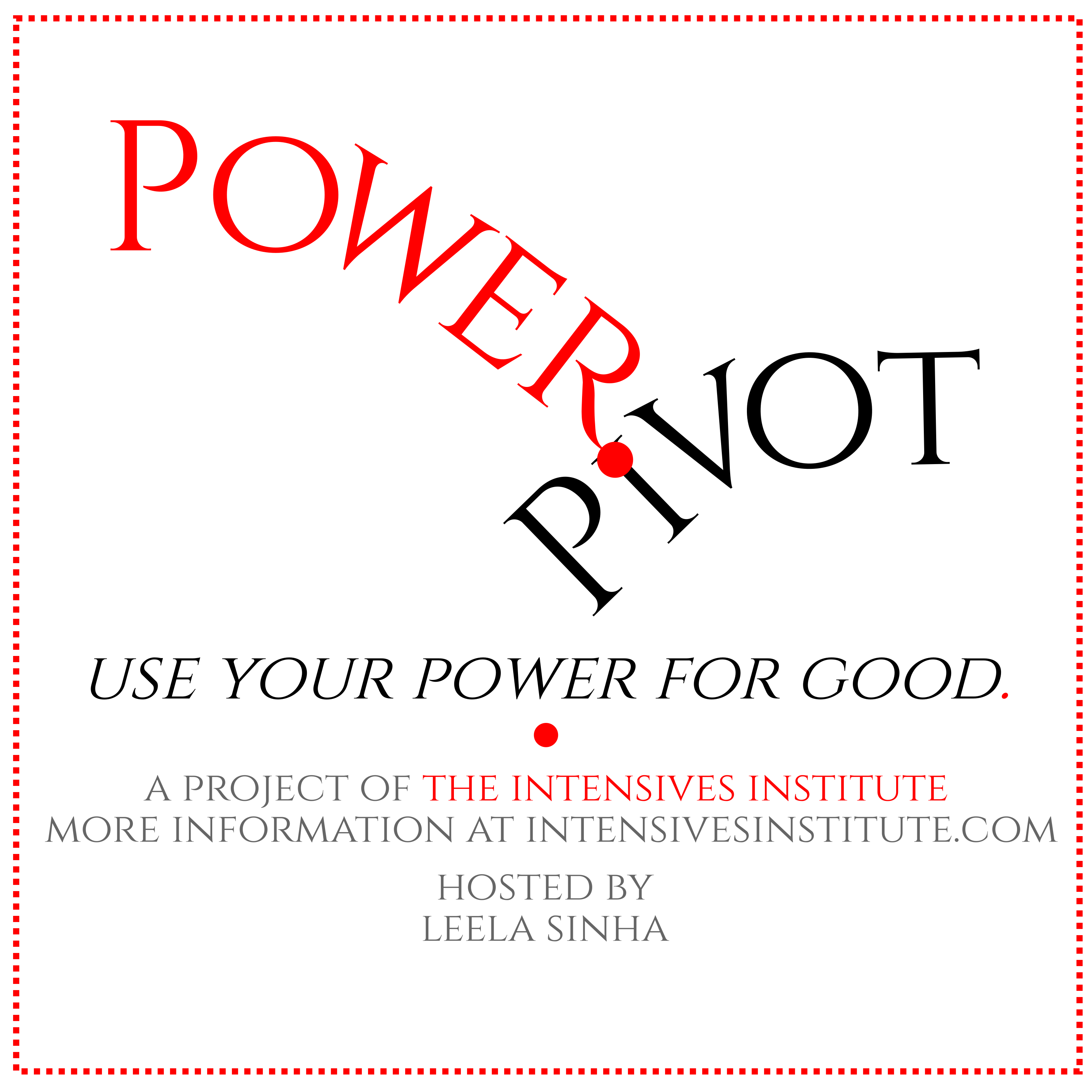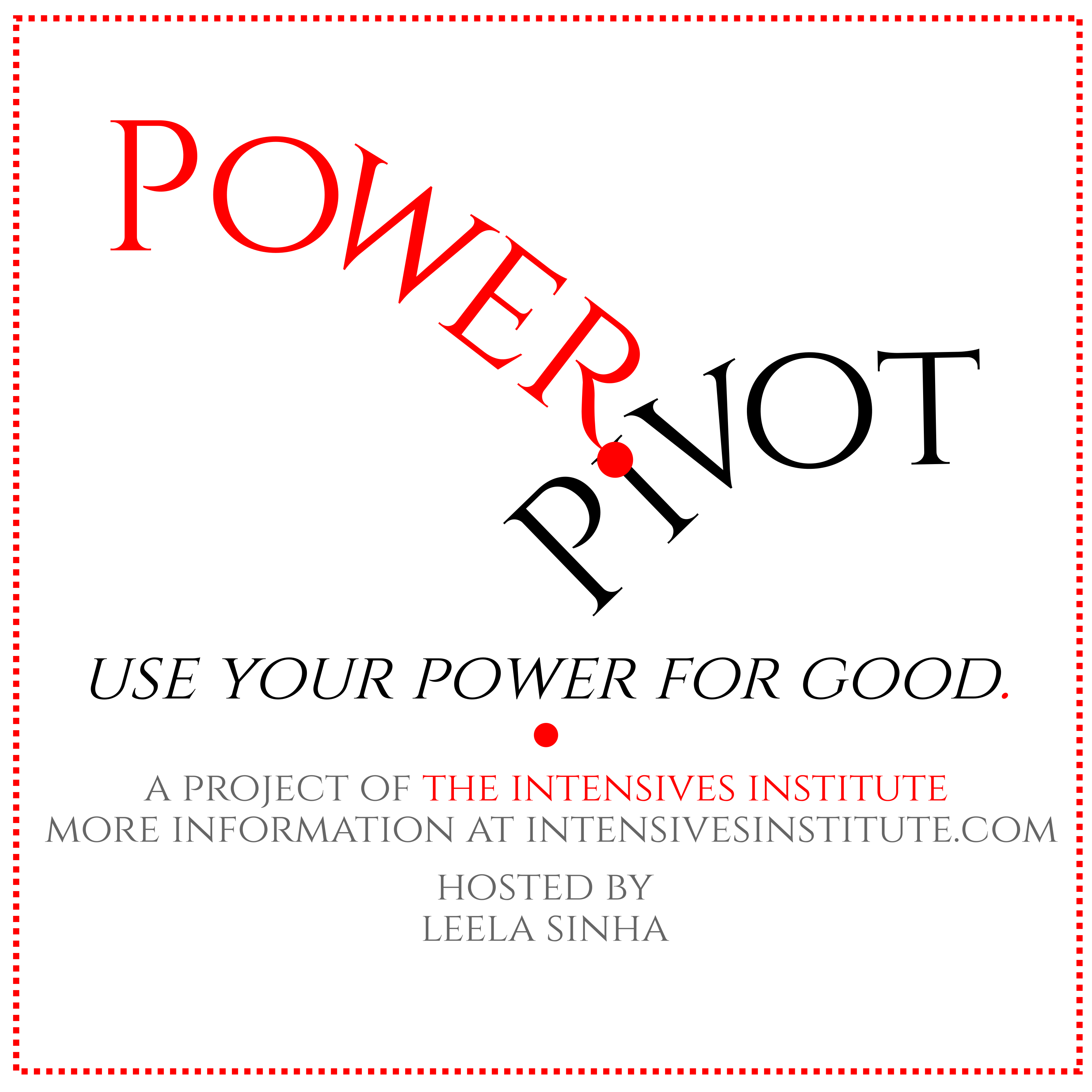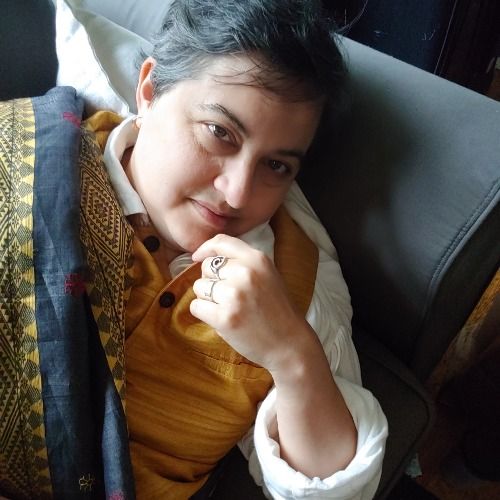Episode 70
Gender, and a podcast recommendation
"…So I listened to a podcast this morning and oh my god, mostly, I'm just here to tell you to go listen to that other podcast. That other podcast is called Man Enough, which is not a podcast I necessarily would have picked up for myself. Although I like the premise. The interview was with ALOK Vaid-Menon, who is an Indian-American activist, speaker, and poet, who is nonbinary, and does a lot of public work around nonbinary identities, around being trans-feminine, and gender. Gender in terms of how does nonbinary identity and gender inclusion, and moving beyond binary understandings of gender at all, interface and interlace with justice, with elevating humanity?"
The Man Enough podcast episode from July 26, 2021, featuring ALOK: (please note that the hosts of the podcast are very much clearly in a beginner space in terms of their learning about non binary identities and trans identities. So brace yourself for that. ALOK is gracious as an educator in the face of that, going into a space where I'm sure they knew they were going to be doing education. Just know that and do what you need to do to take care of yourself.) https://podcasts.apple.com/us/podcast/alok-vaid-menon-the-urgent-need-for-compassion/id1571480224?i=1000530016080
ALOK's website: https://www.alokvmenon.com/
The Man Enough podcast website: https://manenough.com/podcast/
Transcript and show notes at: https://powerpivot2.captivate.fm/episode/gender-and-a-podcast-recommendation
Recorded 30 January 2023.
Transcript
Hi, everyone. Thanks for tuning in.
So I listened to a podcast this morning and oh my god, mostly, I'm just here to tell you to go listen to that other podcast. That other podcast is called Man Enough, which is not a podcast I necessarily would have picked up for myself. Although I like the premise. They're examining what masculinity means and the various angles and ways that masculinity comes through our culture and affects us.
But the interview was with ALOK Vaid-Menon. And ALOK is an Indian-American activist, speaker, poet, who is nonbinary. And who lives into that in a very public way, and does a lot of public work around nonbinary identities, around being trans-feminine, around gender stuff. And not gender stuff in the "I will teach you how to use they them pronouns." But gender stuff in terms of how does nonbinary identity and gender inclusion and moving beyond binary understandings of gender at all, interface and interlace with justice, with elevating humanity. They are so brilliant.
I listened to several chunks of the interview twice, which I almost never do, because I'm an intensive, and we don't like to go over old stuff. But there was just so much there. And also listening to the interview made me realize that I want to immerse myself in more beautifully-crafted, elegant language. The fact that ALOK can do that on the fly in an interview is mind blowing. So for good language, for really elegant interlacing of concepts.
And for me, for hearing it in a particularly South Asian American context, because I don't get to hear that very often. I just don't, it's not out there very much. There are relatively few of us. And even fewer of us speaking and talking specifically about that experience. I have historically mostly avoided doing that. And that has a lot to do with how I feel enough or not. Am I trans enough? Am I queer enough? Am I South Asian enough? I'm a little of this. I'm a little of that. It's, it's complicated.
And in this particular political and social moment, it's complicated for me to say anything, if I am not clearly and absolutely irrefutably inside a population, for which I purport to speak, in part. I would never claim to speak for everybody. But saying that this is my experience as a name-your-identity-here, even that's tricky right now. And I know there are several other people in similar boats. So I really appreciate that they are out there doing that so clearly. We need that. I need that.
I need to hear it, I need to soak in it. In fact, it made me think about what it would be like to only read, or primarily read, at least long form media created by and for non-binary people. Specifically non-binary people.
I spend so much of my life, writing myself into the narrative from the margins. I'm almost part of this group. I'm almost part of that group. I'm sort of part of this other group. But there are very few places where I solidly completely irrefutably belong. When I find places like that, I hang on to them. And I support them, because there are so few of them. And so to hear someone with a similar background to mine, speak about their experience, in that context, speak about their experience moving through the world in that way.
They said one thing that like just stabbed me in the heart, and you should really go listen to the interview so you can hear the whole context. But what they said was that you know, they have to, as many of us do, they had to be excellent. They had to be, you know, beyond just good. They had to be better than everybody else. They had to be brilliant.
just go listen, it's from mid:But absolutely, go find this podcast and listen to it, if you are interested in understanding more about what the nonbinary experience can be like. Now, I will warn you, if you are yourself trans or nonbinary- the hosts are very much clearly in a beginner space in terms of their learning about nonbinary identities and trans identities. So brace yourself for that. ALOK is brilliant and eloquent in the face of that. And gracious as an educator, going into a space where I'm sure they knew they were going to be doing education. Just know that and do what you need to do to take care of yourself.
But listening to- listening to this was so healing and so nourishing for me. And, and set off so many trains of thought. So many little rivulets running down the mountain. So I'm looking forward to sitting with that more, to engaging with it more. And to, to being able to be in in the space- in that space of default belonging.
Years back, I went to a thing called gender camp. Where everyone was either trans or genderqueer, questioning, somewhere in the not-cis universe. And I left gender camp assuming by default, that everyone around me was queer in some way. Like it had just shifted what my default brain state was. And I have never lost that. I now move through the world with the assumption that the people around me are queer and probably gender queer. I know that that assumption is not correct. But my other assumption may also not be correct, which is that most of the people around me are cis.
I think that we're moving into a really interesting moment where someone with an examined cis identity is very different from someone with an unexamined cis identity. And I think that, like seminary often changes people's theology, that examination process changes people's location relative to gender.
Even if they come through that process understanding themselves as cis, I think- I think it's like being cis, but from the other side. From the other side of that examination, which is very different; and of course, being trans or genderqueer, or non binary, or some combination of those things, depending on which labels people choose, or any of the other available labels and identities around gender. I think that that we're coming into a space where more and more people are understanding what it would mean to default to something other than what we've defaulted to, under colonialism. And that really brings me hope.
Thanks for listening


